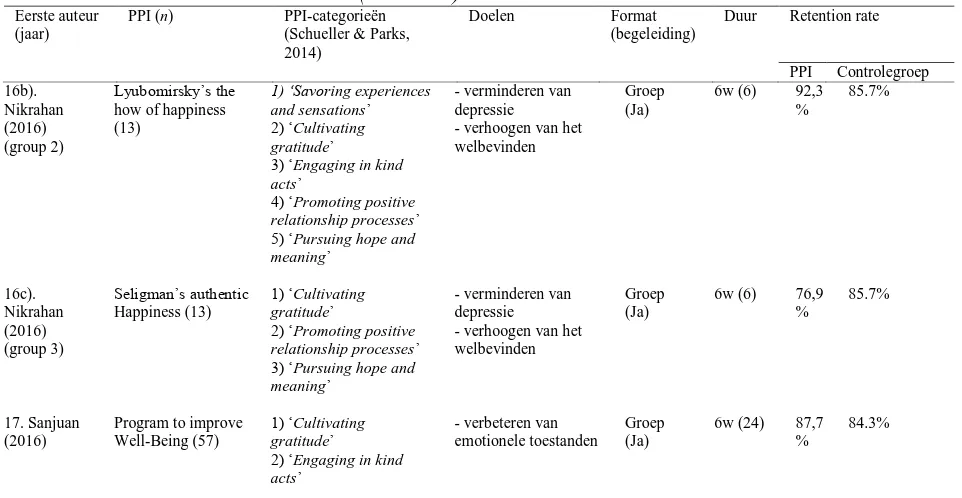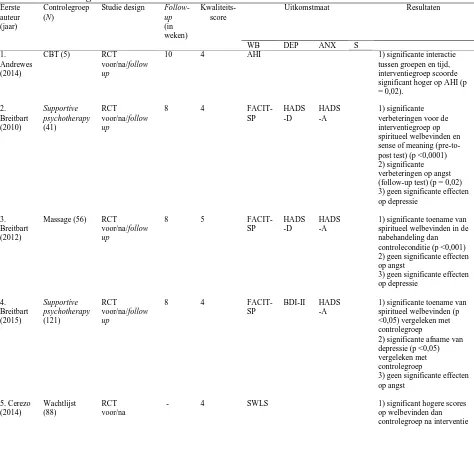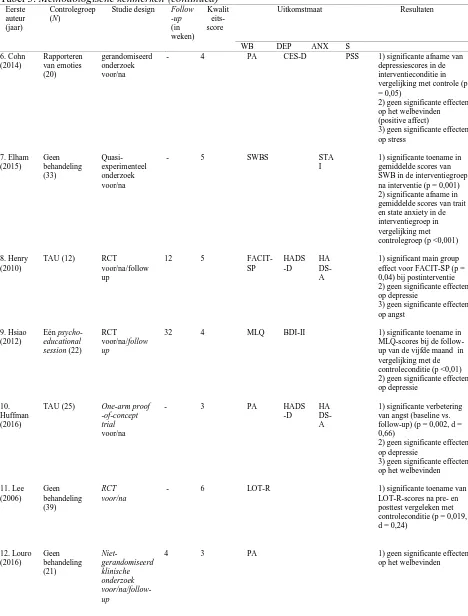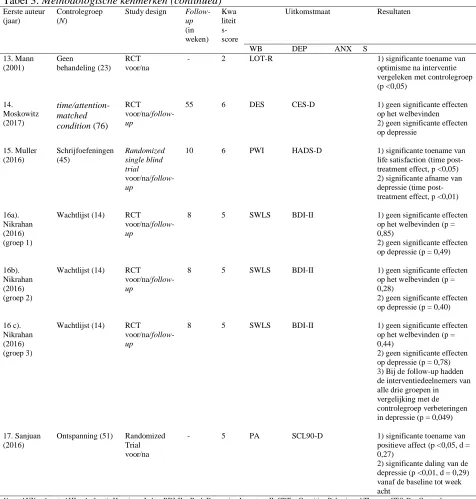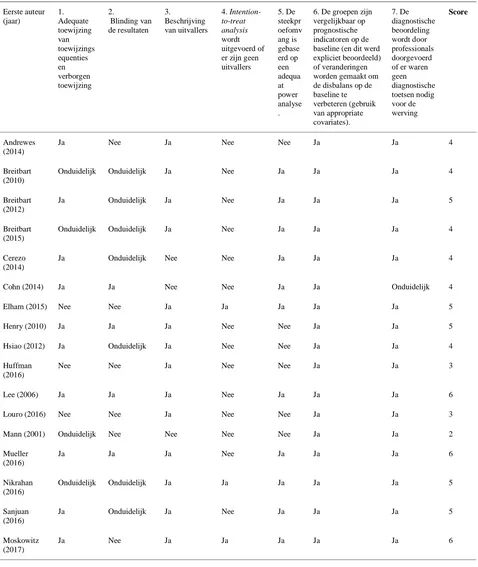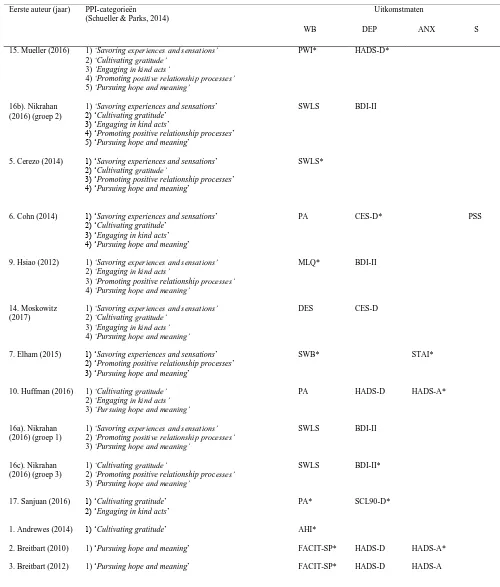De effecten van positieve psychologische interventies op het welbevinden en de psychologische symptomen (distress) in klinische populaties met somatische klachten: een systematische review
Full text
Figure

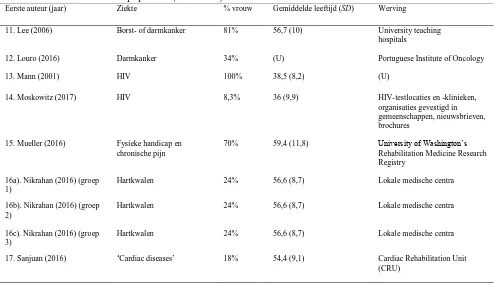
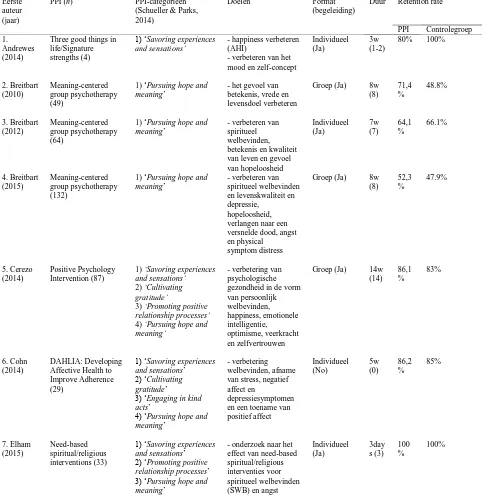
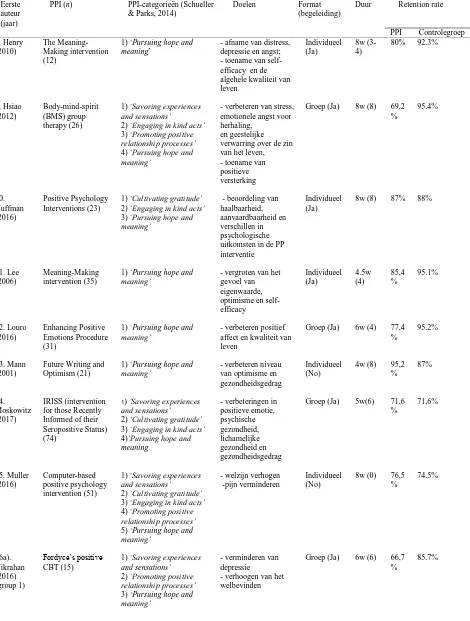
Related documents
Received November 5, 2015; Accepted J anuary 1, 2016; Epub March 1, 2016; Published March 15, 2016 Abstract: Objectives: To provide detailed histological characteristics of
Despite TNFα, a canonical cytokine for stimulation of NF-κB signaling [21], we have for the first time shown that APRIL, a highly expressed cytokine in colon carcinoma,
Rajagopal and Jayabalakrishnan (2010) have reported the effect of temperature on volumetric and viscometric properties of homologous amino acids in aqueous Metformin
Concerns about Misinterpretation of Recent Scientific Data Implicating Dromedary Camels in Epidemiology of Middle East Respiratory Syndrome (MERS)..
The establishment of this quiescent infection in the neurons of peripheral ganglia depends on many parameters, including the efficiency of virus replication in epithe- lial
In an effort to gain a more specific understanding of this vulnerability the present study applied latent class analysis and criminal career theory to gambling data collected from
It is characterized by the transistor and other solid-state electronic devices, by electronic computers, by micro- wave technology in general and microwave tubes
has been imported and some depart- ment heads who never knew the mean- ing of "plan ahead" now attend month- ly review meetings of three days' dura- tion. While many
